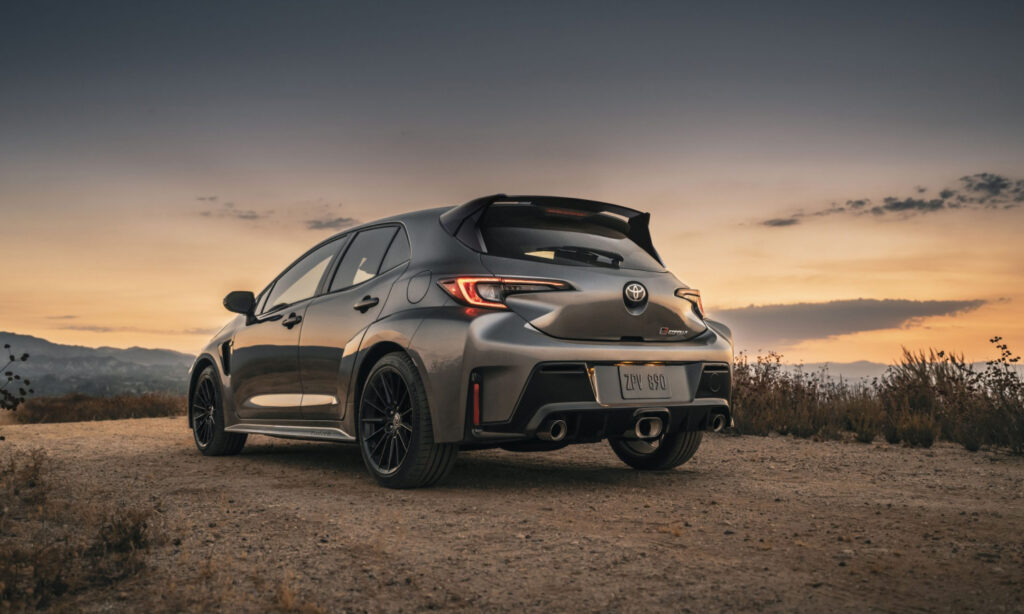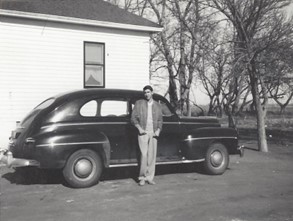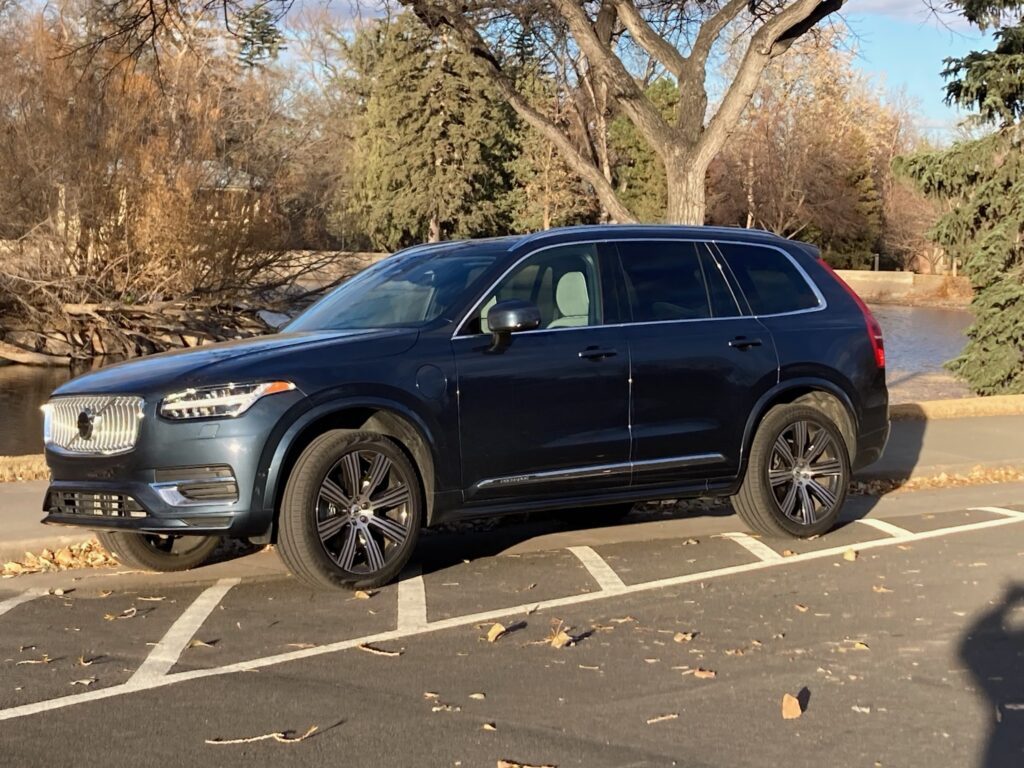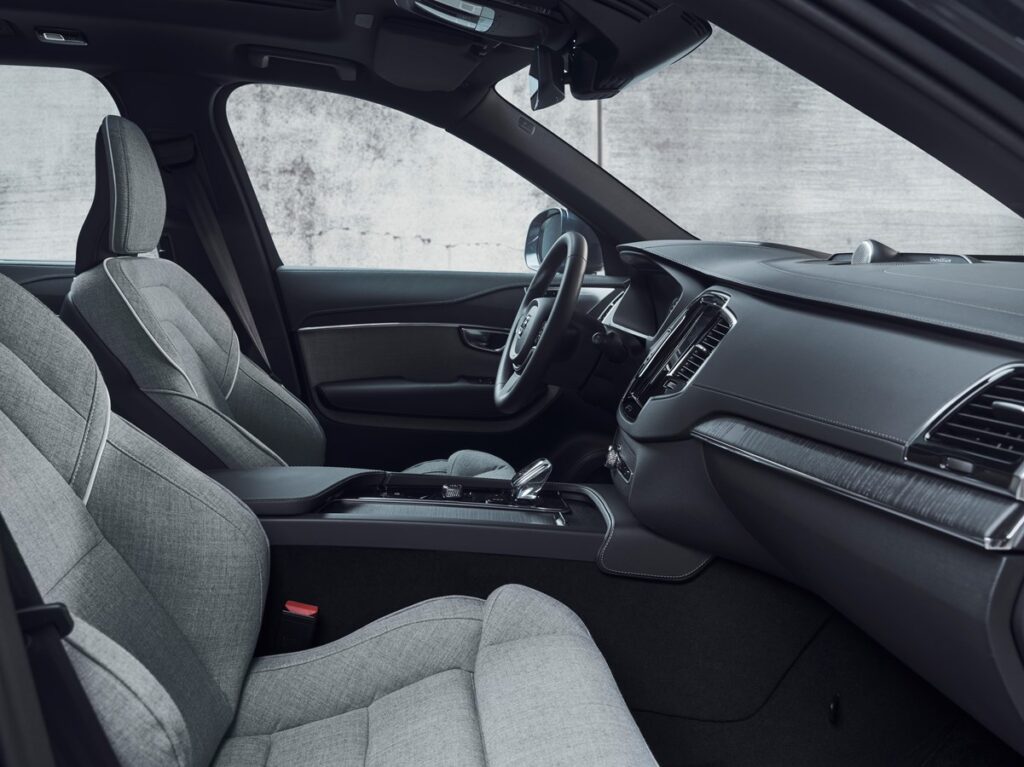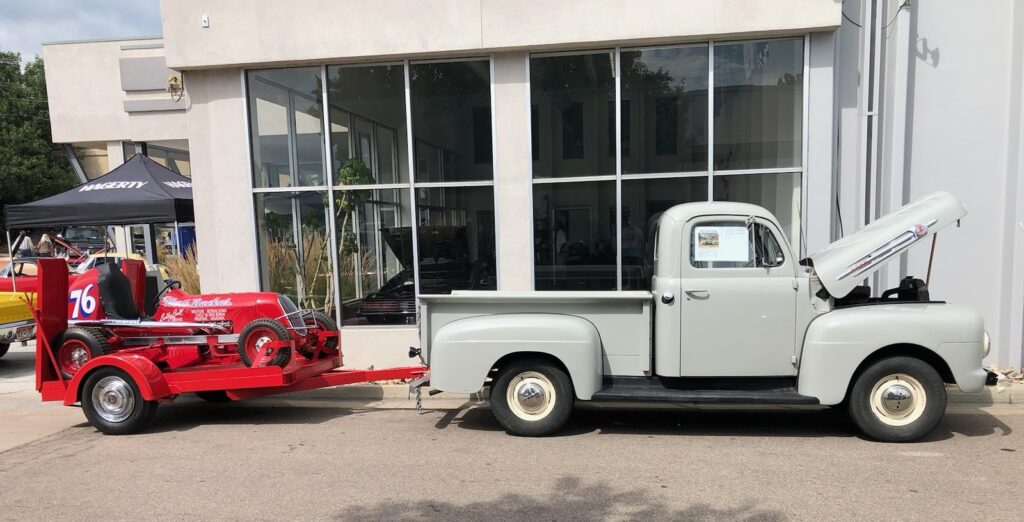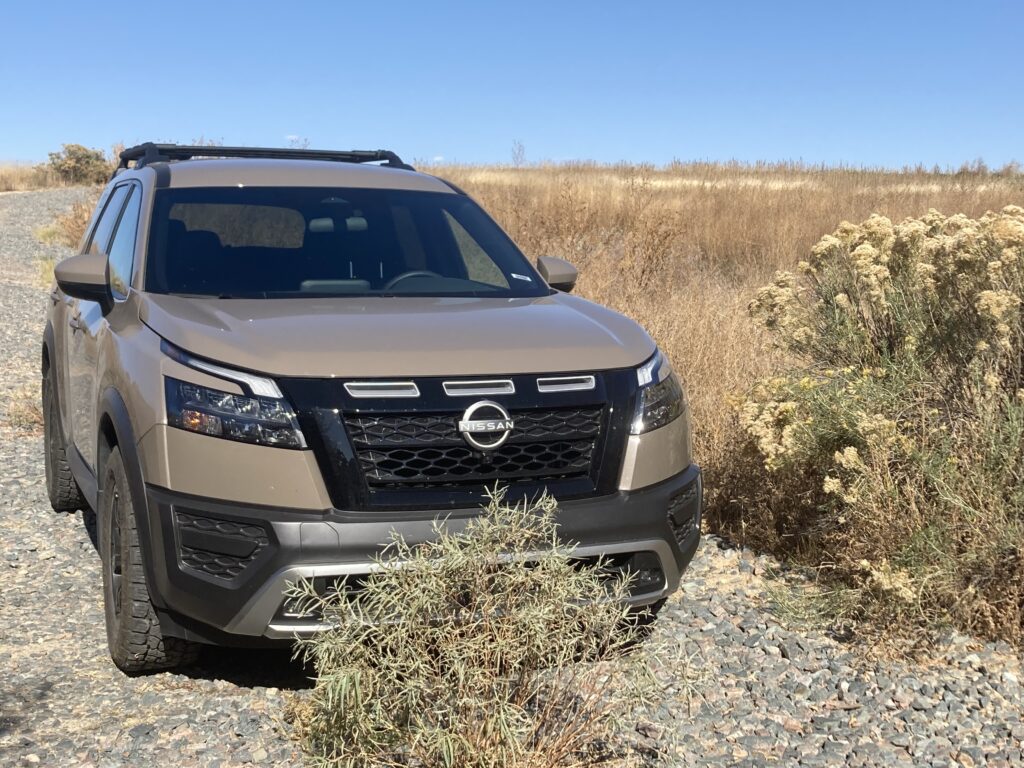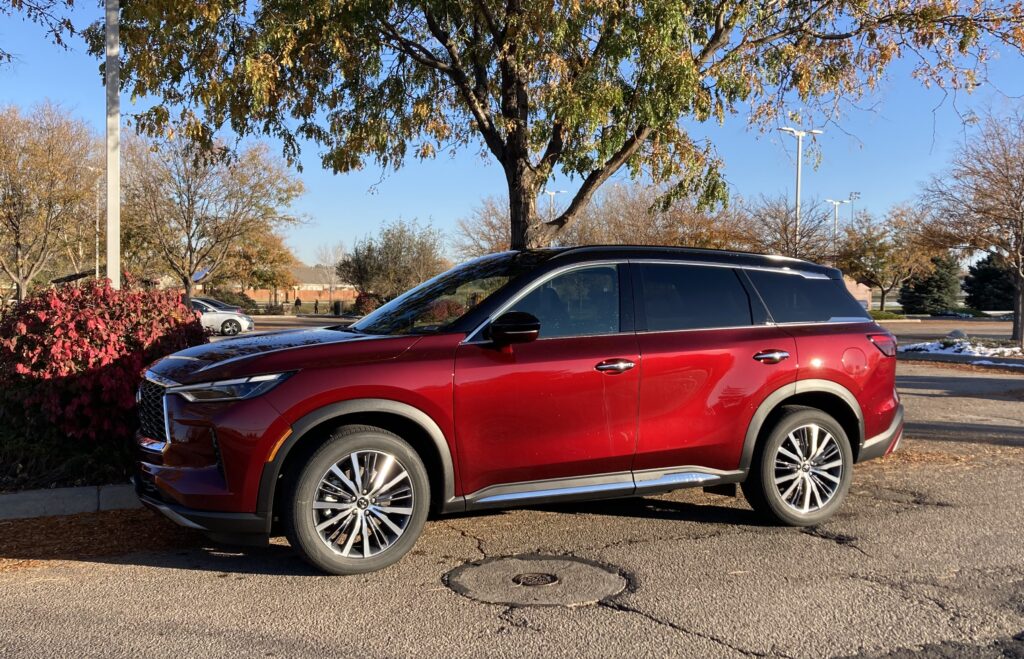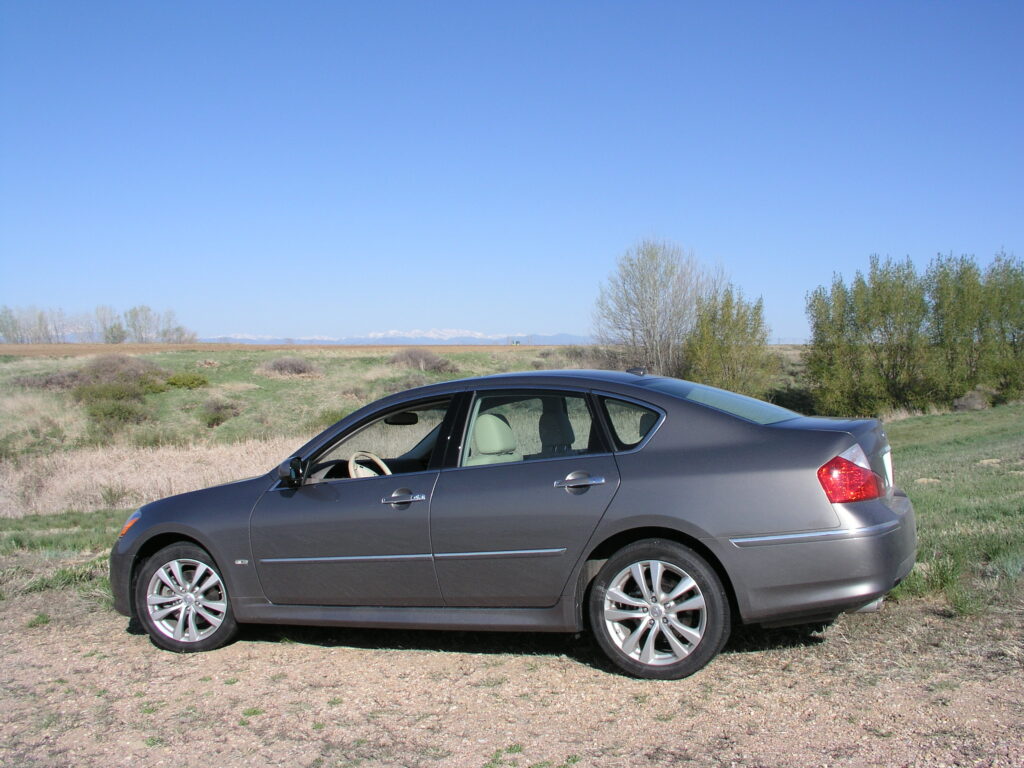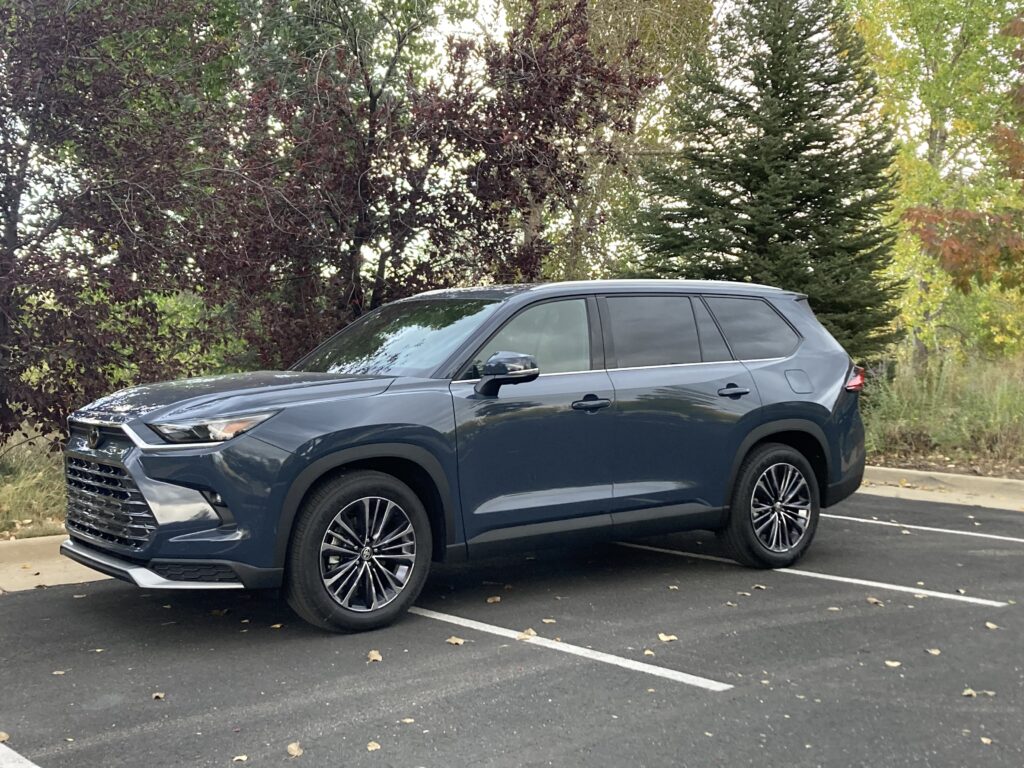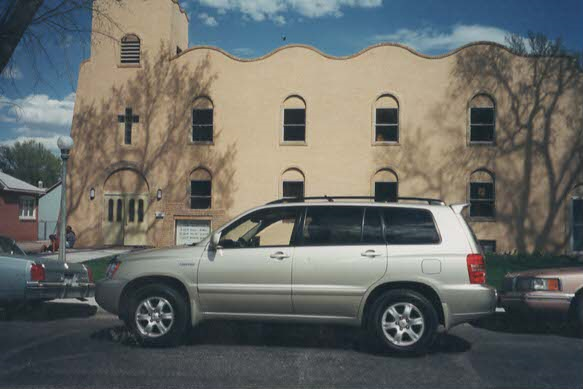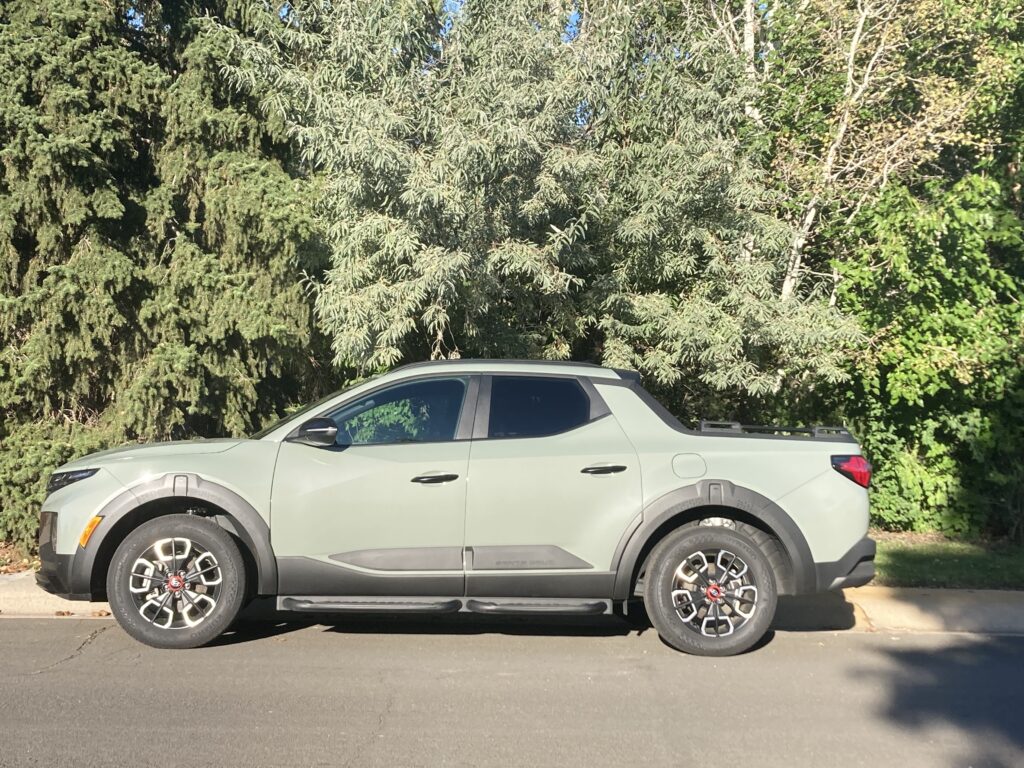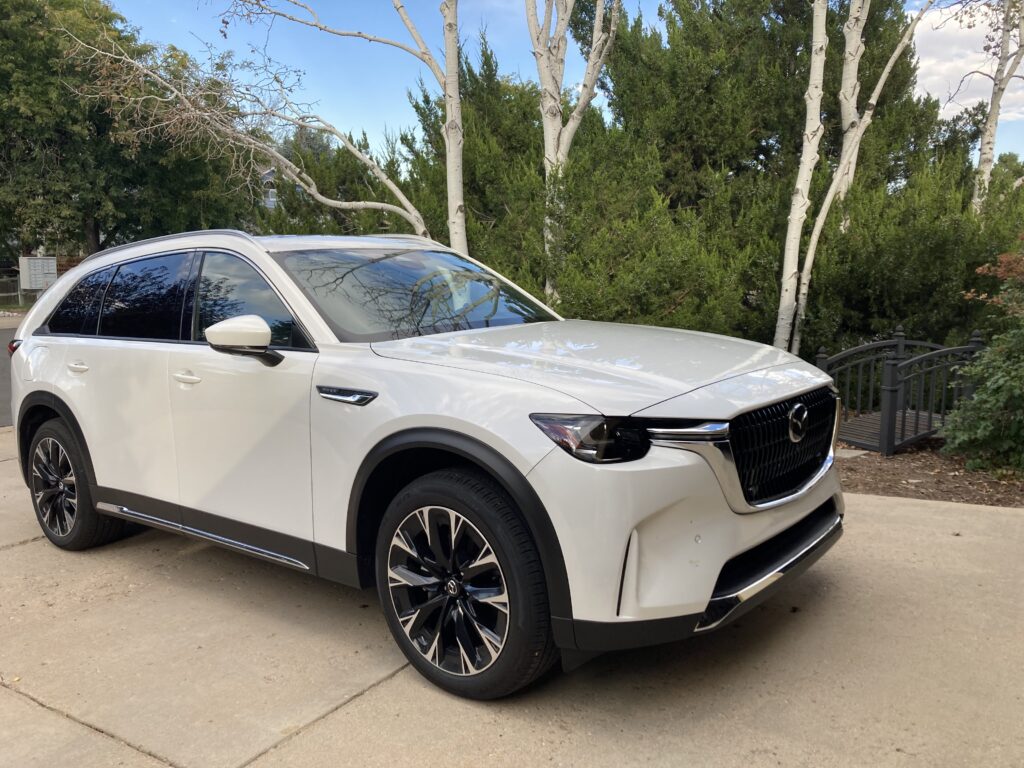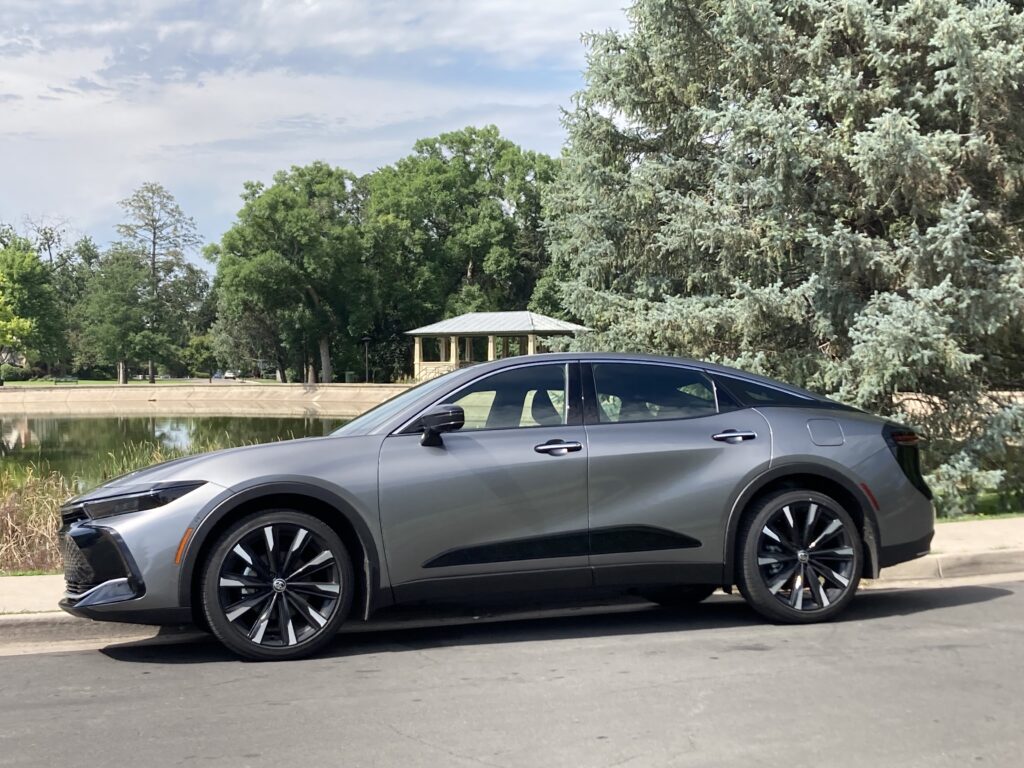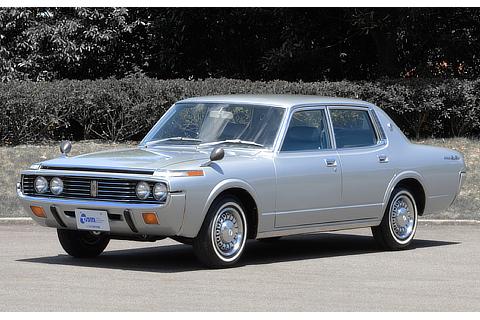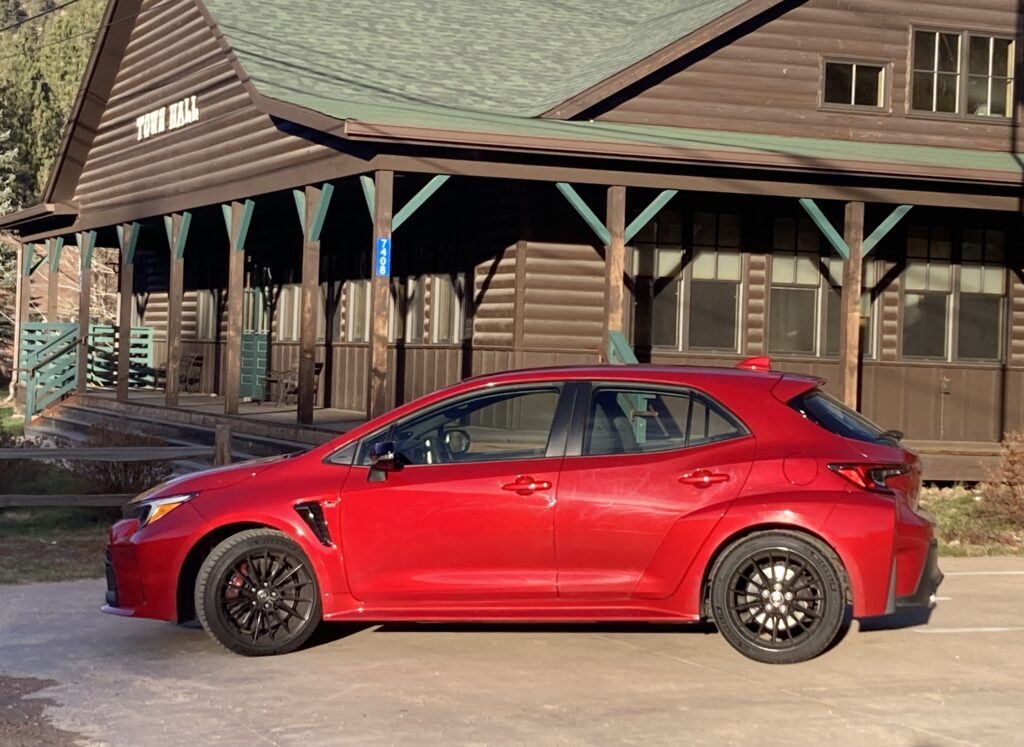
There sat a Toyota Corolla in our driveway on a fairly quiet afternoon; not just an average nondescript Corolla, this was the 2023 GR Corolla Core all-wheel-drive crossover in a supersonic red exterior finish.
The GR is for Gazoo Racing, Toyota’s performance and motorsports division.
The compact hatchback has excellent presence with a black matte grille and angular LED headlamps out front and rear spoiler, rear diffuser and triple exhaust – a pipe for each bore. Yes, it’s a turbocharged 1.6-liter, 3-cylinder with 300 horsepower and 6-speed manual transmission. The three-exhaust emit is great sound and, of more importance, reduces back-pressure on the engine.
Inside the sporty five-door, Jan and I headed west into the Big Thompson Canyon, forking to the right at Drake. That put us on the lightly traveled Devil’s Gulch Road, away from the much-busier U.S. 34. The gulch is a 17-mile back-roads’ diversion from Drake to Estes Park. I drive it often.
The numerous sharp bends and short sprints in between are conducive to near-perfect testings of the 3-cylinder/6-speed manual setup. The GR is quick with response and while shifting back and forth between 3rd and 4th gears on the descent back toward Drake, I might have touched the brake twice.
To say of the GR Corolla Core, “It’s not a great ride, it’s a great drive,” is acknowledgement of the extreme rigidity the Gazoo team builds into the specialty vehicles. So devoted it is to a car at a time, the production rate is 49 GR Corollas per day.
The GR Corolla has both front and rear differentials; twist a knob on the center console, you have all-wheel drive with a 30/70 rear ratio, twist it again its AWD is front-based 60/40. It rides on 18-inch wheels, with Michelin Pilot Sport tires.
The special Corolla averaged 24 miles per gallon; its EPA estimate is 21 city, 28 highway, 24 combined.
We were a bit late to get into the Glen Haven General Store (and its cinnamon rolls), which during November is open only on Saturdays and Sundays and closes by 4 p.m.
The GR Corolla’s base price of $35,900 climbs to $39,659 with addition of the limited-slip front and rear differentials, along with JBL eight-speaker premium audio and amplifier, fabric sport seats and GR-trimmed leather-wrapped steering wheel.
On the safety front, it is equipped with pre-collision and pedestrian-detection, lane-departure alert and lane-tracing assist, automatic high beams and road-sign assist.
The GR is on a wheelbase of 103.9 inches, with overall length of 174 and curb weight of 3,250 pounds. Toyota has established a dedicated GR factory at its production facility in Motomachi, Japan. Among competitors are the Volkswagen Golf R and Hyundai Veloster N.
